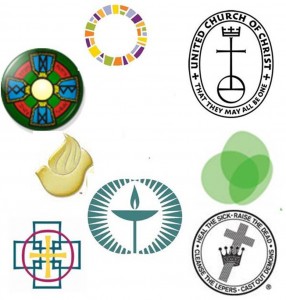Military atheists invited to chaplain conferences

These organizations have already pledged some support for our efforts. Contact MAAF to ask how your organization can be added.
I had the pleasure last week of attending two chaplain conferences. The first was for the Association of Religious Endorsing Bodies (AREB) and the second was for the Network on Ministry in Specialized Settings (COMISS Network). AREB is a collection of some of the most active civilian chaplain religious endorsing bodies, while the COMISS Network brings together endorsers as well as chaplain certification bodies and employers of chaplains (hospitals, etc). This invitation across religious boundaries opens the door to dialogue and constitutes a major step forward in the relationship between nontheists and chaplain organizations.
Throughout both conferences, representatives of both religious and secular organizations were cordial and curious about nontheistic beliefs including general atheism and humanism as a life stance. MAAF provided packets including a list of action items, demographics, and materials that chaplains could use to better support nontheists. Given that there are nearly no humanist chaplains within the profession worldwide, MAAF is providing an essential service in providing this information to religious chaplains. Throughout the conference, about 2/3rds of the approximately 30 religious endorsing bodies requested the information packet.
Several representatives affirmed their commitment to supporting nontheists. Bruce Fenner of the United Methodist Church said their church had already passed our open letter to chaplains to their chaplains for action (see UMC edit below). Christian Science, Unitarian Universalists, Alliance of Baptists, Spirit-Filled Churches, Interfaith Alliance, Sacred Well Congregation, and Swedenborgian churches have pledged other support. The endorser for the United Church of Christ, Stephen Boyd, reaffirmed his commitment to diversity within the chaplaincy and was eager to work more closely with MAAF to understand our needs. Civilian chaplaincy professionals consistently affirmed both the need for current chaplains to support humanists and the appropriateness of humanist chaplains.
Gary Hitzfeld of the Presbyterian Reformed Joint Commission represented many endorsers in his concern with reconciling “religion” with the humanist philosophy for purposes of endorsement. The current method of the Association of Professional Chaplains is to look at the current list of military endorsers or a list of Christian churches (Yearbook of American and Canadian Churches). This obviously is insufficient. During the AREB meeting, I had the opportunity to introduce and explain the IRS “church” tax exemption. Many were not familiar with the nuances of the law, but considered it a very interesting possibility in providing an objective standard for endorsing organizations. Simply put, this is over-and-above the standard 501c3 nonprofit exemption and is used by the military to distinguish between religious and secular groups for the purpose of chaplain endorsement. The “church” tax exemption talks about a lay constituency and deeply-held beliefs. The IRS standard (and many others) would allow for a humanist endorsement because a supernatural or divine component is not required. This is just one of many questions facing the professional chaplaincy that MAAF is interested in helping to resolve.
The COMISS Network awarded a high honor to NYC health care professional Jesuit Dr Walter Smith. Dr Smith dedicated the majority of his presentation to encouraging more rigorous scientific research related specifically to the chaplaincy. He serves on a panel reviewing applications for a $3M Templeton Foundation Grant that will fund chaplain-related scientific research and educational programs. It was encouraging to hear scientific rigor being encouraged and funded by this awardee.
A few endorsers continue to be skeptical if not hostile. Some welcoming smiles were clearly hiding crossed fingers and ill will. Several endorsers have said they distributed the information and support our efforts, yet MAAF has received only two requests for materials since putting out our Open Letter to chaplains. No reports of public outreach by chaplains have been reported. The board of National Conference on Ministry to the Armed Forces (NCMAF), the primary organization for military chaplain endorsers, declines to communicate with MAAF. Nonetheless, the COMISS Network and AREB meetings offered a positive step forward in the theist/nontheist relationship. MAAF looks forward to receiving more inquires for information, materials, and training support. This should be accompanied by chaplains who are not just available for talking but who are taking tangible action to provide support for atheists and humanists.
*Edit 2/1: The United Methodist Church objected to their inclusion as an organization that had “pledged some support” and requested their association be removed. Nevertheless, UMC policy takes a step that many have declined, in that they expect their chaplains to accommodate humanists: “Our stance is constitutionally driven, meaning that all US citizens are persons of worth with guaranteed protection of spiritual/religious accommodation. What is afforded to persons of a specific religious/spiritual traditions (e.g., Chirstian, Islamic, Jewish, Buddhist, Pagan, etc.) should be accommodated for all. This First Amendment Right protects all US citizens and is the basis of our position for affirming the rights of citizens who choose alternative belief and value systems. That being said, it is our belief and expectation that any United Methodist employed as a chaplain in government service will seek to accommodate the spiritual/religious beliefs and practices of all individuals entrusted to their care within the constraints of compelling government interests. While not all may agree, from our perspective humanism is a spiritual belief system.”
